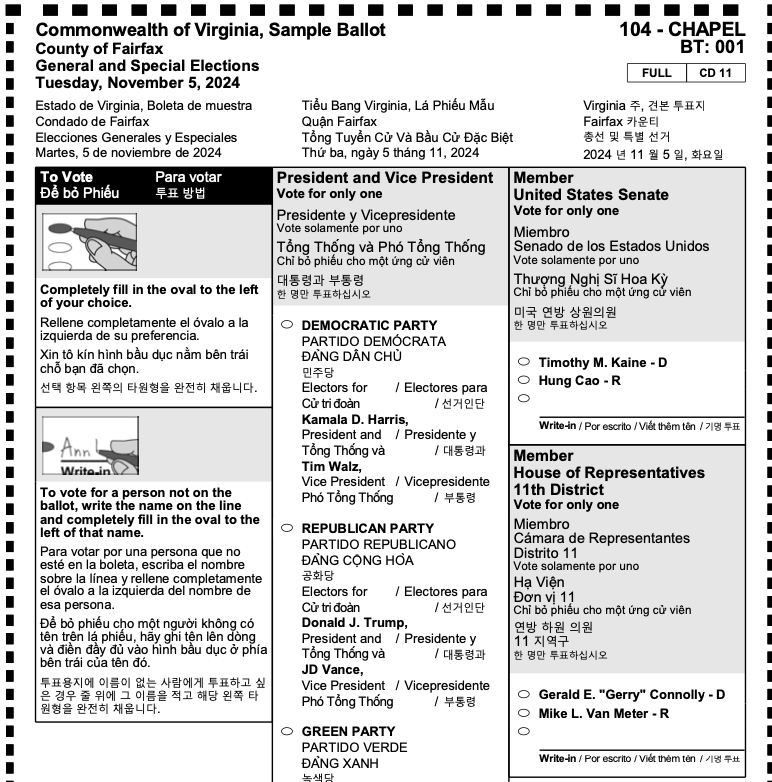The vast majority of each page on the voters’ ballots in Fairfax County, Virginia, is written in foreign languages, making it difficult to locate the names of candidates.
Every line on the ballot appears in three different languages besides English. The foreign languages are intended to make it easy for people who are American citizens, but do not speak English at all, to participate in America’s election process.
But the result is a long and unwieldy ballot that is difficult for Americans to decipher. The candidate’s name doesn’t even appear until seven lines below the bubble voters are supposed to fill in for that candidate.
In 2017, Fairfax County, which houses many federal bureaucrats and overwhelmingly votes Democrat, said it would print all ballots with four languages, including Spanish, Vietnamese, and Korean.
The federal government says that the Voting Rights Act of 1965, as amended in 2006, requires ballots to be printed in foreign languages where there are many foreigners with less than a fifth-grade education.
“Section 203 mandates that a state or political subdivision must provide language assistance to voters if more than five (5) percent of voting-age citizens are members of a single-language minority group and do not ‘speak or understand English adequately enough to participate in the electoral process,’ and if the rate of those citizens who have not completed the fifth grade is higher than the national rate of voting-age citizens who have not completed the fifth grade,” the Census Bureau said in 2021. The same also applies if there are more than 10,000 people, but they make up less than 5%.
The Census Bureau determines which jurisdictions meet this criteria. The federal government did not require Fairfax to print in Korean, but it said it was adding the language because its population was close to the level that would trigger it.
That requirement was supposed to have been temporary and to have expired decades ago, but Congress has repeatedly extended the temporary provisions — with the 2006 amendment extending the language requirement to 2032.
Fairfax’s ballots also list the bubble next to the presidential candidate’s party, not name — a style that seems to encourage party-line voting and makes it difficult to even figure out which bubble is for which candidate. Donald Trump’s name, for example, appears seven lines of text below the bubble, amidst a sea of foreign characters.
Virginia’s Republican nominee for Senate, military veteran Hung Cao, came to the U.S. as a refugee from communist Vietnam.
No comments:
Post a Comment